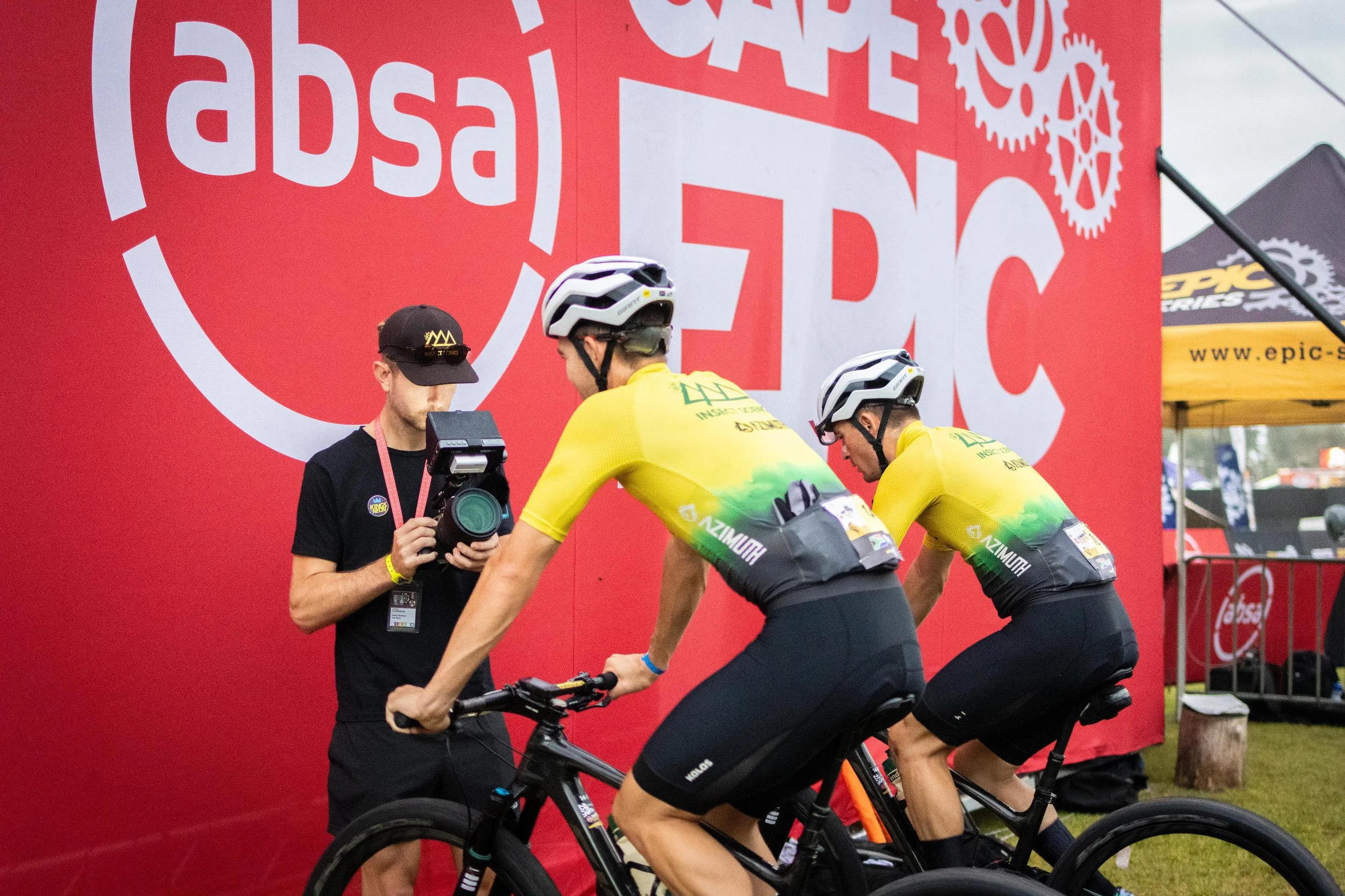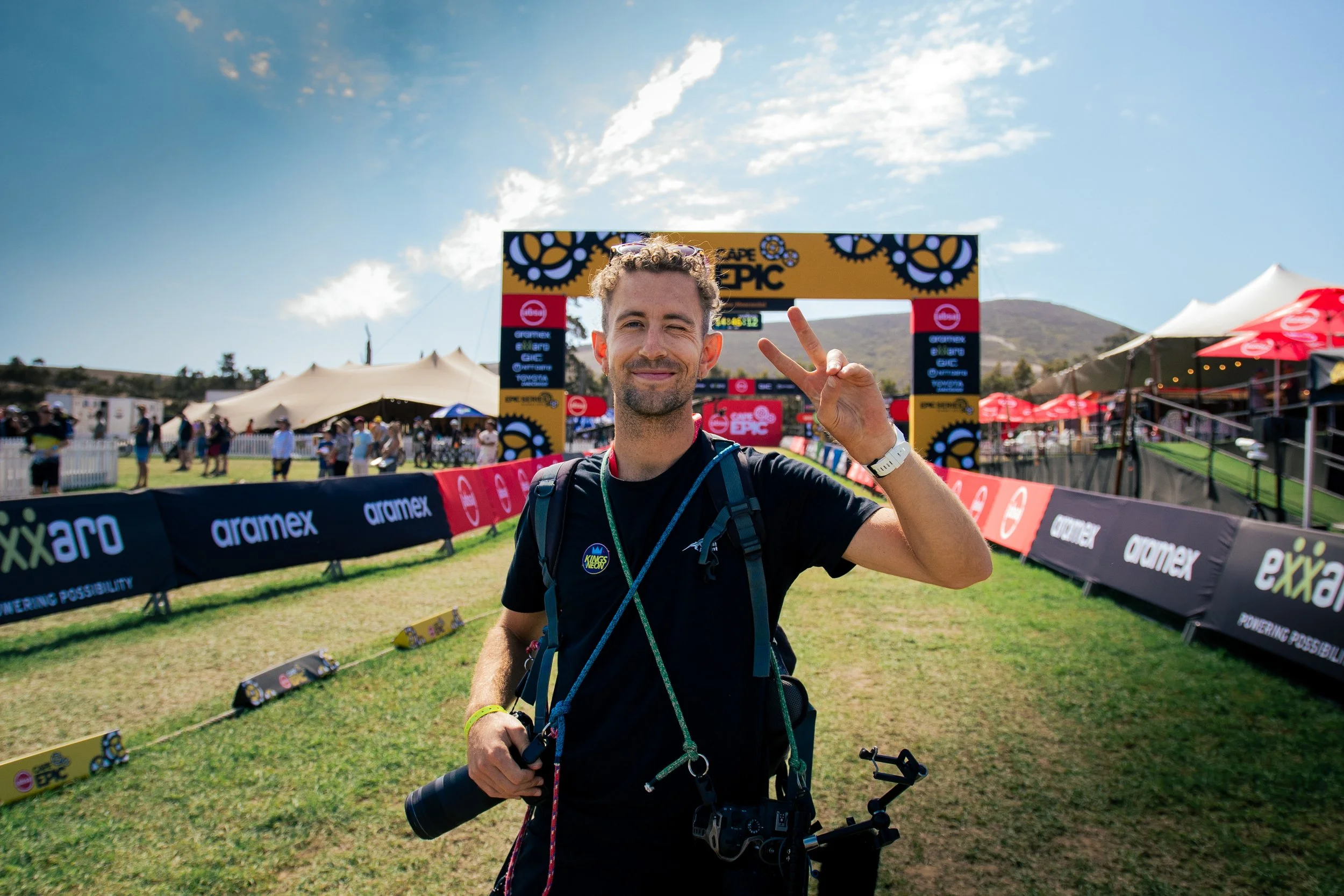My first proper Documentary: What I learnt
Okay, there’s so much to say here, but I’m going to try keep it short and to the point.
In March this year I spent a week with the South African mountain biking team Insect Science as they took on the most treacherous and brutal mountain bike stage race in the world. It was a fascinating dive into a sport I had previously only had few touch points with. It really opened my eyes to the world of documentary filmmaking and here are a few takeaways:
Lesson 1: Practice makes Progress. You can watch endless YouTube tutorials, read helpful tips and tricks (hopefully like this one), and debate about what equipment to use, but all that head knowledge doesn’t mean as much as you’d think when you’re actually out in the field documenting. You have to be out there, gaining experience and learning on the job, making mistakes and carrying on. In practice everything is always different to the theoretical because so many external factors emerge that were not part of your online learning. So if there’s one thing I took away from this, is to shoot shoot shoot!
Lesson 2: Think ahead (as much as you can). The nature of docuementary filmmaking is that you often have no idea what you will be filming next. The story is unfolding as you’re going along, and so locations, characters, and plots can change as they develop. Of course you should have an overall idea of what story you are telling and how your story could branch out, but depending on the subject matter, you cannot always predict it. For this reason, thinking ahead to what might come next or what might be needed next, based on what you’re currently shooting, is so vital. How will what you are filming now fit into the story as a whole, and what might you need to film in the future to make sure what you’re currently filming makes sense. Think of it like building a puzzle, but it’s not always done in a logical or methodical way, so you need to keep on top of what you have- ,are- and will be filming.
Lesson 3: Expect the unexpected. Expanding from lesson 2, this is real life with real people, meaning situations and storylines can change unexpectedly with a single phone call. Being adaptable, fluid and staying true to the core story are critical in ensuring the premise is not lost in the uncertainty or the changing landscape. Don’t panic, just trust the process, that’s ultimately what you’re there for.
Lesson 4: Story is King. No amount of equipment or perfect lighting or budgeting or pretty images can make up for a story that is weak. A gripping story will always trump those things, as that is the fundamental core of a what a documentary is. I’ve watched countless undercover docs filmed on 720p phone cameras etc, but they’re all great to watch because they’re story-led. If you’ve got amazing visuals and audio to match the story then you’re winning, but it’s not what will define the success of your film.
Lesson 5: It can be staged*. This is quite dependent on the subject matter. For this film it wouldn’t have been possible to fake a racing situation for example, however if a strong story exists and you have access to the relevant people involved, it’s amazing whats possible when staging scenes. Budget and time allowing, it can be worth recreating certain scenes that perhaps happened in the past if it aids the story now. On one occasion, half way through the 8-day race, there was a moment where one of my riders had a crash and went down. Talking to him afterwards he was describing the exchange of words with his partner when he got back on the bike, and we ended up recreated that hasty conversation that evening to aid the narrative of the day.
Hope there’s some value in there :))






